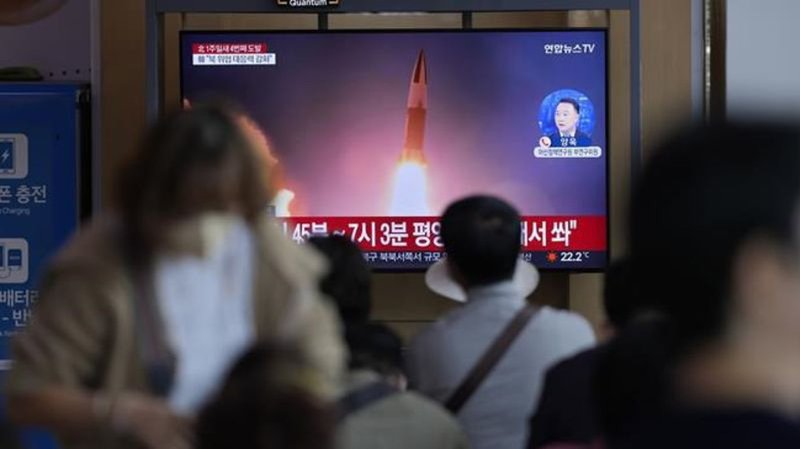
North Korea fires 4th round of missile tests in 1 week
SEOUL, South Korea (AP) — North Korea on Saturday fired two short-range ballistic missiles toward its eastern waters, South Korean and Japanese officials said, making it the North’s fourth round of weapons launches this week that are seen as a response to military drills among its rivals.
South Korea’s military said that it detected the two North Korean missile launches 18 minutes apart on Saturday morning coming from the North’s capital region. Japan’s Defense Ministry said it also spotted the launches.
“The repeated ballistic missile firings by North Korea are a grave provocation that undermines peace and security on the Korean Peninsula and in the international community,” South Korea’s Joint Chiefs of Staff said in a statement.
It said South Korea strongly condemns the launches and urges North Korea to stop testing ballistic missiles.
